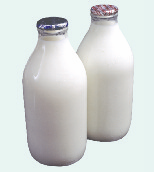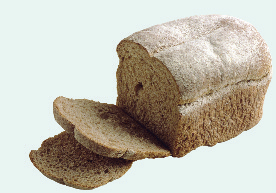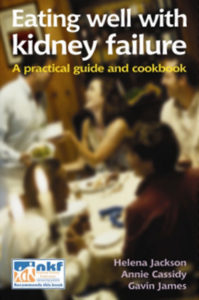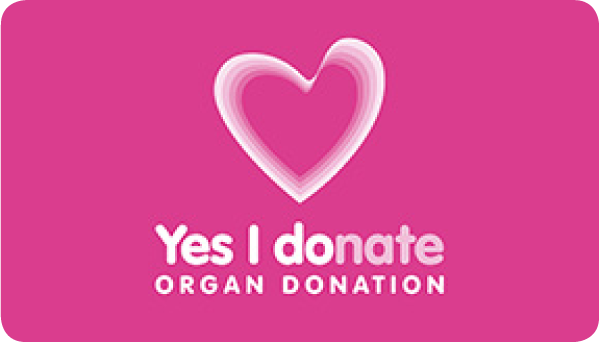Diet Advice
Most renal patients have special dietary requirements. These will vary from sensible healthy eating and drinking in early stage kidney disease through to signification limitations on food and fluids in end-stage renal failure.
What do kidney dietitians look at in my diet?

Energy
Energy is important so that you can carry out your daily activities. Most of your energy (calories) should come from starchy carbohydrates, such as cereal, bread, potatoes, rice, noodles, pasta, cassava and yam. You should have at least one of these foods in every meal.
Protein
Protein is needed for growth and repair of muscle tissue. The richest sources of protein are animal protein foods such as meat, poultry, fish, yoghurt, eggs, cheese and milk. Vegetable protein foods include nuts, pulses (beans and lentils), tofu, Quorn and soya chunks/mince.
Fat
Eating less fat can help reduce your risk of heart disease and prevent you from becoming overweight. Saturated (bad) fats are found in butter, cheese, fatty meats, biscuits, cakes and pastries. Unsaturated (good) fats are found in olive oil, rapeseed oil, sunflower oil and spread made with these oils. Remember, all fats are high in energy so, if you are watching your weight, you need to limit all the fats that you eat. However, if you have a small appetite,fat is a good source of energy.
Fibre
Fibre keeps your bowel habits regular and keeps you feeling fuller for longer, which helps to prevent unnecessary snacking. Good sources of fibre include wholemeal/ wholegrain breads and cereals, brown rice/pasta, fruit, vegetables, oats and pulses (beans and lentils).

Salt (sodium)
Too much salt can raise your blood pressure and can make it difficult to control the fluid in your body, as it makes you thirsty. Reducing the amount of salt in your diet will make this much easier. Most of the salt we eat is found in processed foods such as soups, salted snacks, processed meats and some breakfast cereals. Avoid adding salt to your food while cooking or at the table. Do not use salt substitutes. Do not use salt substitutes such as LoSalt or Solo – these contain very high levels of potassium.
as these contain potassium as these contain potassium (see below).
Potassium
Potassium is a mineral found in your body and in many foods. Your kidneys control the amount of potassium in your blood. In kidney disease, you lose this control. Too much or too little potassium can affect your heart beat. Hence, you may be advised to decrease or increase (less common) your dietary potassium intake. You do not need to follow a low or high potassium diet unless you have been advised to by the kidney team.
Phosphate
Phosphate is a mineral found in your body and in many foods. In kidney disease, your blood phosphate levels can rise which can cause weak bones, itching and a build-up of phosphate in your blood vessels, joints or muscles. This can cause them to harden. If your phosphate levels rise, the dietitian will advise you on how to reduce the phosphate in your diet. Phosphate-binding medication will also help lower your phosphate levels.
Fluid
As your kidneys fail, they are unable to control the amount of fluid in your body. Fluid can build up causing your ankles or legs to swell and making you short of breath. It can also increase your blood pressure. In the long-term, this will damage your heart. Once you start dialysis, you will need individualised advice about the amount you can drink each day to ensure that fluid does not build up. Eating less salty foods will reduce thirst and thus help you to keep to your fluid allowance. For more information on fluids, read here.
What can I do if I have lost my appetite?
If your appetite is poor, it is important that you do not lose too much flesh weight (muscle or fat) because this can weaken your muscles, slow down healing and take you longer to recover from illness.
- Try to eat little and often. Eat smaller portions at mealtimes and have a snack between meals, such as toast, crumpets, biscuits, crackers or cake.
- Avoid filling yourself up with high fibre and low calorie foods which give you little energy, such as soup, fruit and vegetables.
- Avoid drinks with meals as they will fill you up very quickly.
What can I do if I am overweight?
If you are overweight and have a good appetite, you should aim to lose some weight. Remember that the amount of food you eat, as well as the type of foods, is important. The benefits of a healthier weight include having more treatment choices. You may not be able to have a kidney transplant if you are overweight because of the pressure the operation will put on your body. The dietitian can help you lose weight while maintaining a healthy diet.
What can I do?
• Follow a healthy, balanced diet. Reduce the amount of salt you eat.
• Be aware of the amount of fluid you drink.
• If prescribed, take your phosphate binders as instructed.
• Exercise regularly. Even gentle walking will help.
• If you are going to see the kidney dietician, bring along the person who does the cooking and food shopping.
There are a number of good resources that can provide more advice including
- Edinburgh Renal Unit – this site provides comprehensive diet information including suggested recipes and recommendations about what to eat when dining out at the main types of restaurant cuisine (Indian, Italian, Chinese, English etc). It also includes specific advice for haemodialysis and peritoneal dialysis patients.
- Eating well with Kidney Failure – a book written by Renal Dieticians including Helena Jackson, a dietician at St George’s. The link is to Amazon. Here you can buy the book new. But if you are looking for a lower cost option checkout the Kindle version and second hand copies also on sale.





